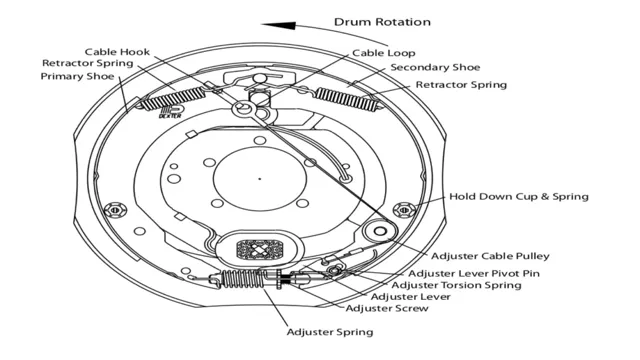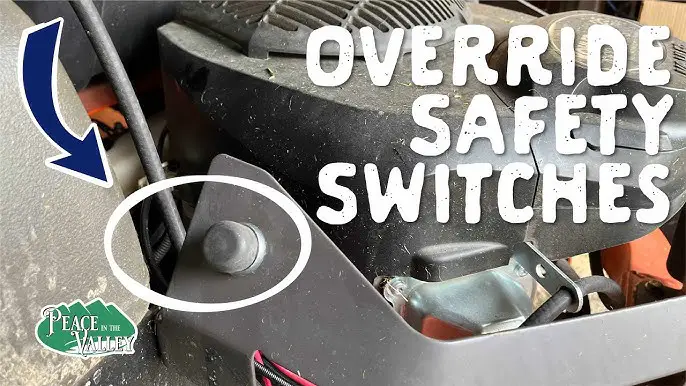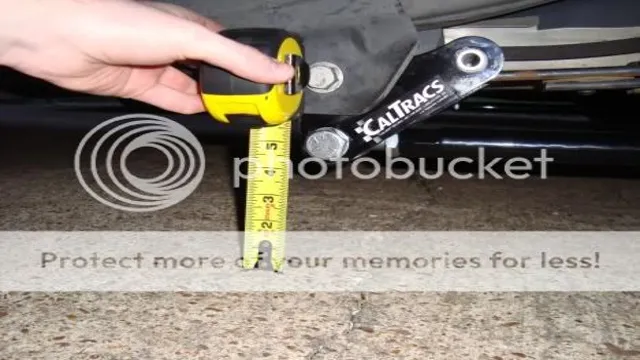Unleash the Power: Ultimate Guide on How to Bypass Speed Limiter on Trucks
Have you ever been stuck behind a slow-moving semi-truck on the highway, wishing you could just pass it already? Well, some truck drivers feel the same way about the speed limiter that’s installed on their vehicles. Speed limiters are designed to prevent trucks from exceeding a certain speed, usually around 65 mph, to increase safety on the road and reduce fuel consumption. However, some drivers believe that speed limiters can also hinder productivity and cost them money.
That’s why some truckers have found ways to bypass them, which poses a significant risk to other drivers and the trucking industry as a whole. In this blog post, we will explore the dangers of bypassing speed limiters on trucks and why it’s crucial to adhere to speed limit regulations.
Understanding Speed Limiters
If you’re a truck driver, you may have encountered a speed limiter on your vehicle. Speed limiters are devices that restrict the maximum speed at which a truck can travel. While they are intended to improve safety on the road, they can be frustrating for drivers who need to get to their destinations quickly and efficiently.
Fortunately, there are ways to bypass speed limiters on trucks. However, it’s important to note that tampering with a speed limiter may violate local laws and regulations, as well as the terms of your employment. Before attempting to bypass a speed limiter, consult with your employer and understand the potential consequences.
Remember, safety should always be your top priority on the road.
How They Work
Speed limiters are devices that are installed in vehicles to limit the speed at which they can travel. These devices work by controlling the amount of fuel that is allowed into the engine, which in turn limits the vehicle’s speed. Speed limiters are typically used in commercial vehicles and are designed to prevent drivers from exceeding the legal speed limit.
By limiting speed, these devices help reduce the risk of accidents and improve road safety. They also help to reduce fuel consumption, which can be especially important for businesses that rely heavily on their vehicles. Speed limiters operate by communicating with the vehicle’s engine management system, using sensors to monitor the vehicle’s speed and control the amount of fuel that is allowed into the engine.
This ensures that the vehicle cannot exceed a predetermined speed limit, keeping both the driver and other road users safe. While some people may see speed limiters as an inconvenience, they are an essential safety feature that can prevent accidents, save lives, and reduce fuel consumption. To effectively limit the speed, speed limiters are often programmed to restrict the top speed to 60 – 70mph, depending on the type of vehicle and the road conditions.
They are especially important in ensuring that younger or inexperienced drivers do not exceed the speed limit, as they tend to be the most at risk of causing accidents on the road. Ultimately, speed limiters can help save lives, reduce accidents, and improve road safety for all road users.

Why They’re Installed
Speed limiters are the electronic devices installed in commercial vehicles to limit their speed. They are an essential tool for ensuring road safety and reducing the number of fatalities caused by road accidents. Speed limiters work by controlling the maximum speed at which the vehicle can travel.
Once the vehicle reaches the set limit, the limiter will engage and reduce power to the engine, thereby preventing the driver from exceeding the speed limit. The reason why speed limiters are installed is that commercial vehicles tend to travel long distances, which will cause the driver’s fatigue. Speed limiters can help alleviate this by reducing the maximum speed to prevent drivers from traveling too fast and losing control of their vehicle.
Furthermore, they also help in reducing fuel consumption and minimizing wear and tear on tires and other vehicle components. Overall, speed limiters are an essential safety feature that helps keep drivers safe on the road while minimizing damage to the vehicle.
Legal Implications
If you’re a driver or a fleet manager, you’ve probably heard of speed limiters. Essentially, speed limiters are devices that can be installed on vehicles to restrict their maximum speed. They’re designed to increase safety on the roads, as high speeds are a leading cause of accidents.
But what are the legal implications of using speed limiters? The answer to this question can vary depending on where you are in the world. In some countries, there are regulations that make speed limiters mandatory on certain types of vehicles. In others, there are no legal requirements, but using speed limiters can still be beneficial in terms of reducing accidents and improving fuel efficiency.
It’s essential to understand the laws in your area before installing speed limiters on your vehicles. They can be a valuable tool for promoting road safety, but you don’t want to run afoul of the law. At the end of the day, it’s all about striking a balance between safety, efficiency, and legal compliance.
Methods for Bypassing Speed Limiters
Truck drivers often find themselves up against a speed limiter, a device that regulates the top speed of their vehicle, and wonder how to bypass it. While it’s important to drive safely and within legal speed limits, there are methods to bypass the speed limiter if it’s causing delays or affecting productivity. One option is to reprogram the vehicle’s electronic control module (ECM) to remove the speed limiter feature.
This requires technical knowledge and specialized tools, so it’s best to consult with a professional mechanic who specializes in this area. Another option is to install a “speed governor override” device, which bypasses the ECM and allows the driver to adjust the speed limit manually. However, it’s important to note that tampering with the speed limiter may void the manufacturer’s warranty and compromise the safety of the vehicle.
It’s crucial to weigh the potential risks and legal implications before attempting any modifications.
Hardware Modifications
If you’re looking for ways to bypass speed limiters on your vehicle, there are a few hardware modifications you can try. One option is to install a performance module or chip that interacts with your vehicle’s engine control unit (ECU). These modules can recalibrate your vehicle’s settings to allow for higher speeds and more power.
Another option is to replace your vehicle’s throttle body with a larger one, which can increase the airflow to the engine and boost its performance. Additionally, you may consider installing a larger exhaust system, which can improve your engine’s efficiency. It’s important to note that modifying your vehicle’s hardware can void any manufacturer warranties, so proceed with caution and consult with a professional mechanic before attempting any modifications yourself.
Software Modifications
Speed limiters on vehicles are put in place to ensure the safety of both the driver and the general public. However, some motorists may feel that these limiters are too restrictive and wish to bypass them. There are various methods that can be used to modify the software of a vehicle to bypass speed limiters.
One such method is through the use of a performance chip. This chip is installed into the car’s engine management system and enhances its performance. Another way is through the use of an electronic module that overrides the speed limiters.
While these modifications may provide a temporary boost in speed, it is important to note that they can be illegal and could also void any warranties on the vehicle. Additionally, it may also be dangerous to drive at high speeds which the vehicle was not designed for. Therefore, it is recommended that drivers use caution when considering software modifications to bypass speed limiters, and abide by the imposed speed limits for the safety of all.
Resetting the Speed Limiter
Speed limiter bypass. As much as speed limiters are important safety features, some people view them as a hindrance. Bypassing speed limiters is illegal and can be dangerous, but that doesn’t stop people from trying.
There are various ways to bypass a speed limiter, but they all come with risks. One method is to reset the limiter’s software, which involves gaining access to the ECU (Engine Control Unit) and deleting the limiter’s data. However, this method requires technical knowledge, tools, and can potentially damage the vehicle.
Another method is the installation of a performance chip, which tricks the ECU into thinking the vehicle is running at a slower speed. Performance chips are available, but they are illegal in most states. While it may seem tempting to bypass a speed limiter, it’s essential to remember that speed limiters are in place to keep us safe.
Safe driving practices should always be the priority, and it’s crucial to respect the law, even if it seems inconvenient.
Potential Risks and Consequences
If you’re looking for ways to bypass the speed limiter on your truck, you need to be aware of the potential risks and consequences that come with it. While it’s true that removing the limiter can give you more control over your vehicle’s speed, it can also expose you to various hazards on the road. For one, driving beyond the recommended limit increases the risk of accidents, especially if you are not well-versed in maneuvering your truck at high speeds.
Moreover, removing the speed limiter is illegal and can get you into trouble with the authorities. It might also increase the wear and tear on your vehicle, leading to costly repairs. Ultimately, while it may seem tempting to bypass the speed limiter, the risks far outweigh any potential benefits.
As a responsible driver, it’s crucial to abide by the recommended speed limits and prioritize your safety and that of other road users.
Safety Hazards
When it comes to safety hazards, there are many potential risks and consequences that can arise. From slipping on a wet floor to getting injured by heavy machinery, the dangers in any workplace can be numerous. One of the main hazards that can cause serious harm is electrical issues.
Faulty wiring or equipment can lead to electrocution, burns, and even death. Another common hazard is chemical exposure. Whether it’s inhaling fumes or coming into direct contact with hazardous substances, employees working with chemicals must be vigilant in protecting themselves.
Additionally, physical hazards such as falling objects and unsecured scaffolding can pose a significant threat to the safety of workers. It’s essential that everyone in a workplace is trained properly to identify and avoid potential hazards in order to ensure a safe working environment. By taking proactive measures to minimize safety risks, we can prevent accidents and protect the wellbeing of employees.
Legal Consequences
When it comes to online activities, there are potential legal consequences that one may face. For instance, downloading copyright-protected materials without permission could lead to being sued for damages or, in some cases, incarceration. Similarly, committing acts of cybercrime, such as hacking, phishing, or distributing malware, can result in severe penalties, including fines or imprisonment.
It’s essential to be aware of potential risks and consequences before engaging in any online activities. Ignorance is not an excuse when it comes to breaking the law, so it’s better to be safe than sorry. Every action we take on the internet has a digital footprint that can be traced back to us, so being vigilant and responsible for our actions can keep us out of legal trouble.
Conclusion and Additional Resources
While there may be ways to bypass a speed limiter on a truck, it’s important to remember that these limiters are in place for a reason – to ensure the safety of the driver, passengers, and other motorists on the road. It’s always better to drive at a safe and legal speed, rather than risking the consequences of going too fast. So, instead of looking for ways to cheat the system, let’s focus on being responsible and conscientious drivers.
“
FAQs
What is a speed limiter on trucks?
A speed limiter is a device installed in trucks to restrict the maximum speed limit.
Why do trucks have speed limiters?
Speed limiters are installed in trucks to ensure safety on the roads and to comply with government regulations.
Can the speed limiter on trucks be removed?
It is illegal to remove or tamper with speed limiters on trucks. Doing so can result in hefty fines and penalties.
Is there a legal way to bypass the speed limiter on trucks?
No, there is no legal way to bypass the speed limiter on trucks. Drivers must comply with the set speed limit to avoid legal consequences.
What are the consequences of bypassing a speed limiter on a truck?
Bypassing a speed limiter on a truck can result in hefty fines, license suspension or revocation, and even jail time if it causes an accident or injury. It is highly discouraged and illegal.






